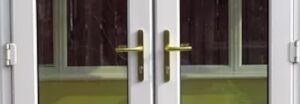30 Inspirational Quotes About Door Handle Troubleshooting
페이지 정보

본문
Door Handle Troubleshooting: A Comprehensive Guide
Door handles function as necessary parts of any entranceway, enabling seamless access and boosting security. Nevertheless, much like any other mechanical part, door handles can deal with problems gradually. Understanding how to troubleshoot common issues can conserve house owners time and cash. This thorough guide aims to supply valuable insights into door handle troubleshooting, covering identification of problems, possible services, and often asked concerns.
Common Door Handle Problems
Before delving into services, it's crucial to develop a list of common issues that homeowners might face with door handle replacement (www.skydivelm.com) handles:
- Sticking or Jammed Handle: The handle may not turn efficiently or may feel stuck.
- Loose Handle: A handle that wobbles or feels loose can be bothersome and may indicate an underlying concern.
- Non-Functioning Lock Mechanism: The handle might turn, however the locking mechanism does not engage.
- Misaligned Door: If the handle is challenging to run, the door itself may be misaligned.
- Broken or Cracked Handle: Physical damage to the handle can render it inadequate.
- Rust or Corrosion: Especially in exterior doors, rust can hinder functionality.
Troubleshooting Solutions
1. Sticking or Jammed Handle
A sticking or jammed handle can frequently be fixed with a little bit of maintenance. Here's what to do:
- Inspect and Clean: Remove any visible particles or dirt around the handle and latch area. Use a cleaner and a soft fabric.
- Lubricate: Apply a silicone spray or a graphite lubricant to the handle's moving parts. Prevent utilizing oil-based items, as they can draw in dirt and trigger further sticking.
- Tighten up Screws: Sometimes, the screws that hold the handle in place may have loosened up, leading to friction. Tightening them can frequently fix the issue.
2. Loose Handle
A loose handle can quickly be tightened. Here's how you can approach this:
- Locate the Screws: Most handles are secured with screws concealed underneath decorative caps. Eliminate any caps and look for screws.
- Tighten Screws: Use a screwdriver to secure the screws, guaranteeing they are tight however not extremely tight, which could trigger breaking.
- Replace: If the handle remains loose, think about replacing it, as damaged parts may no longer hold safely.
3. Non-Functioning Lock Mechanism
If the handle turns but does not engage the lock, follow these steps:

- Inspect the Lock Cylinder: Sometimes the lock cylinder can get jammed. Remove the cylinder and examine it for debris or damage. Cleaning up may be necessary.
- Check Alignment: Ensure that the lock aligns correctly with the strike plate. If misalignment happens, adjust the strike plate or the lock.
- Lubrication: Apply lubricant to the locking mechanism to reduce friction.
4. Misaligned Door
A misaligned door can trigger issues with handle operation. Address it as follows:
- Examine Hinge Screws: Look for loose screws on the hinges. Tightening up these can help straighten the door.
- Use a Shim: If the alignment issue persists, installing shims can help readjust the door's position within the frame.
- Professional Help: If the door stays misaligned, it might be best to speak with a professional, as it may indicate structural issues.
5. Broken or Cracked Handle
A physical break or fracture needs replacement. Here's how to handle this:
- Remove the Broken Handle: Unscrew and remove the damaged handle.
- Select a Replacement: Visit a local hardware shop or search online to discover an ideal replacement handle.
- Install the New Handle: Follow the producer's instructions to set up the new handle appropriately.
6. Rust or Corrosion
Handling rust requires diligence in repair. Here's a guide:
- Remove Rust: Use a wire brush or sandpaper to scrub away any rust from the handle. Take care not to harm the surface area.
- Tidy and Protect: Once rust is removed, tidy the location and apply a rust-inhibiting spray or paint to prevent future events.
- Consider Replacement: If the handle is considerably worn away, replacement may be necessary.
FAQs
Q1: How often need to I carry out maintenance on my door handles?A: Regular
maintenance every 6 months can help prevent lots of common issues. Cleaning up and oiling handles ought to belong to this regimen.

Q2: What type of lubricant ought to I use?A: Silicone spray or graphite lubricant is best. Prevent oil-based products as they can draw in dirt.
Q3: Can I replace the door handle myself?A: Yes! The majority of door handle replacements are straightforward and can be handled by a house owner with standard tools. Q4: What if the problem persists after troubleshooting?A: If issues remain unsettled, consider calling a professional locksmith or door technician for more support. Q5: Are there alternative services to door handle problems?A: Installing clever locks or keyless entrysystems can also decrease dependence on standard handles and locks
, potentially alleviating some common issues. Troubleshooting door handle issues can seem difficult, but a lot of problems have simple options. By keeping door handles
routinely and using the tips supplied in this guide, homeowners can ensure their entries operate efficiently. Whether you're dealing with a sticking handle or a misaligned door, a proactive approach will protect both the performance and security of your home. Whenever in doubt, bear in mind that professional aid is simply a call away, guaranteeing you preserve a safe and available living environment.
- 이전글Your Family Will Thank You For Getting This Professional Conservatory Repair 25.07.02
- 다음글The Intermediate Guide To Buy License 25.07.02
댓글목록
등록된 댓글이 없습니다.

